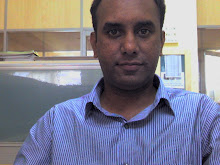I envy the gentlemanly way in which the Americans play their political game. The day after a no-holds-barred battle for Democratic nomination for the world’s most powerful office, the winner, Obama, calls on the vanquished, Hillary Clinton, and seeks her support for the contest ahead.
Hillary offers to be his vice-presidential running mate. All the bitterness and bad blood generated by one of the fiercest contests in American history vanished into thin air at the fur of a moment.
This is unimaginable in India. Our elections are characterised by money and muscle power, lust for spoils of office, factional feud and personal animosity that leave a bad taste in the mouth for months after the elections.
But I am not overly cynical. I see the contours of a two-party, presidential form of democracy, a la United States, evolving in India. A strong pointer is that, by design or default, a bipolar polity is emerging with the Congress and the BJP representing the two poles.
There was no viable political alternative to the Congress until P V Narasimha Rao’s tenure as Prime Minister ended in 2004. We had non-Congress Prime Ministers like Morarjee Desai and Charan Singh from Janata Party, Chandra Shekhar from Samajwadi Janata Party, V P Singh, I K Gujral and Deve Gowda from Janata Dal, but their governments were thrown up by the electoral compulsions of the time and not as part of a political churning process. That was why those governments were short-lived and their parties did not find their roots.
But A B Vajpayee recharted the political course of the country. His first two tenures did not last for more than 13 days and 13 months respectively, but the political realignment set in motion by him had by then become so inalienable that he could not only come back to power for the third time but also complete his government’s tenure.
There was no looking back ever since. In the 2004 Lok Sabha election, most political parties rallied behind either the Congress or the BJP. Even the Left which claims to represent the third force had to jump into the Congress bandwagon for political sustenance.
Though the BJP lost the election, it could retain the opposition space and save the National Democratic Alliance (NDA) from disintegrating. Now with the BJP installing its first Chief Minister in the South, more regional parties are set to gravitate towards the BJP, leaving the electorate with a clear choice between the NDA and the UPA in the next Lok Sabha election as well.
My second premise is that elections in India are becoming more of a clash of personalities than of parties or ideologies. The 2004 Lok Sabha election was a veritable fight between Vajpayee and Sonia Gandhi, although she was not projected as the Congress party’s prime ministerial candidate.
The last Assembly elections in Gujarat were a vote for Narendra Modi’s leadership. The BJP was quick to see the change in voter predilections and recast its political strategy accordingly, even as the Congress was too obsessed with dynastic succession to see the writing on the wall.
The BJP stole a march over the Congress by projecting L K Advani as its prime ministerial candidate even one year ahead of the next Lok Sabha election. And the party’s gameplan seems to be working with even Afzal Guru wanting Advani to be the next prime minister, of course, in a different context.
BJP fine-tuned its electoral strategy in Karnataka with impressive results. It fought the election by projecting B S Yeddyurappa as its chief ministerial candidate. The Congress was undecided on the leadership question, prompting Advani to comment that the Congress would choose its captain only after the 20Twenty game was over.
Our founding fathers, in their wisdom, thought that parliamentary democracy would best suit a nation of India’s diversity and largely uneducated and illiterate electorate who won’t understand the complexities of the election process followed in a presidential system like that of the US. But the scourge of defections, corruption, nepotism and lack of informed debate has made a mockery of parliamentary democracy in India. Governments are toppled for the sake of pampering the ego of political players at colossal cost to public exchequer. There is no continuity of policies as governments come and go. Development suffers as a result. The Vajpayee government had initiated two visionary projects—the golden quadrilateral and interlinking of river projects—which would have become the economic lifeline of the country. But the two projects were put on the backburner by the successive government on political considerations.
A direct contest between two leaders or two political formations should make Indian voter’s choice all the more easy and judicious and reflect the national will in a better way. Multiplicity of parties and leaders with no ideological affinities contesting against each other would only yield a fractured verdict.
The abject failure of Parliamentary democracy to deliver goods has promoted many political pundits to argue that an American model of presidential governance, with the proviso that the President would be elected by a direct vote of all citizens and not an electoral college, would be more preferable for India. My vote is for them.
skip to main |
skip to sidebar

A 13th BOX Alliance Blog.
Blog Archive
-
▼
2008
(20)
-
▼
June
(10)
- There have been many memorable moments in India's ...
- Are we game for an Obama-McCain style battle
- Border fencing renders thousands landless
- Lalu on Rising Inflation in the Country
- 'I want to play a politician in Shahrukh's film'
- Rush for joining Army in terror-hit areas
- Pakistan's new PM is an Aishwarya fan
- When Prez dealt with Kashmir: Kalam's tryst with d...
- Former minister's son sells newspapers for livelihood
- Soothsayers set the national agenda
-
▼
June
(10)
About Me

A 13th BOX Alliance Blog.

No comments:
Post a Comment